
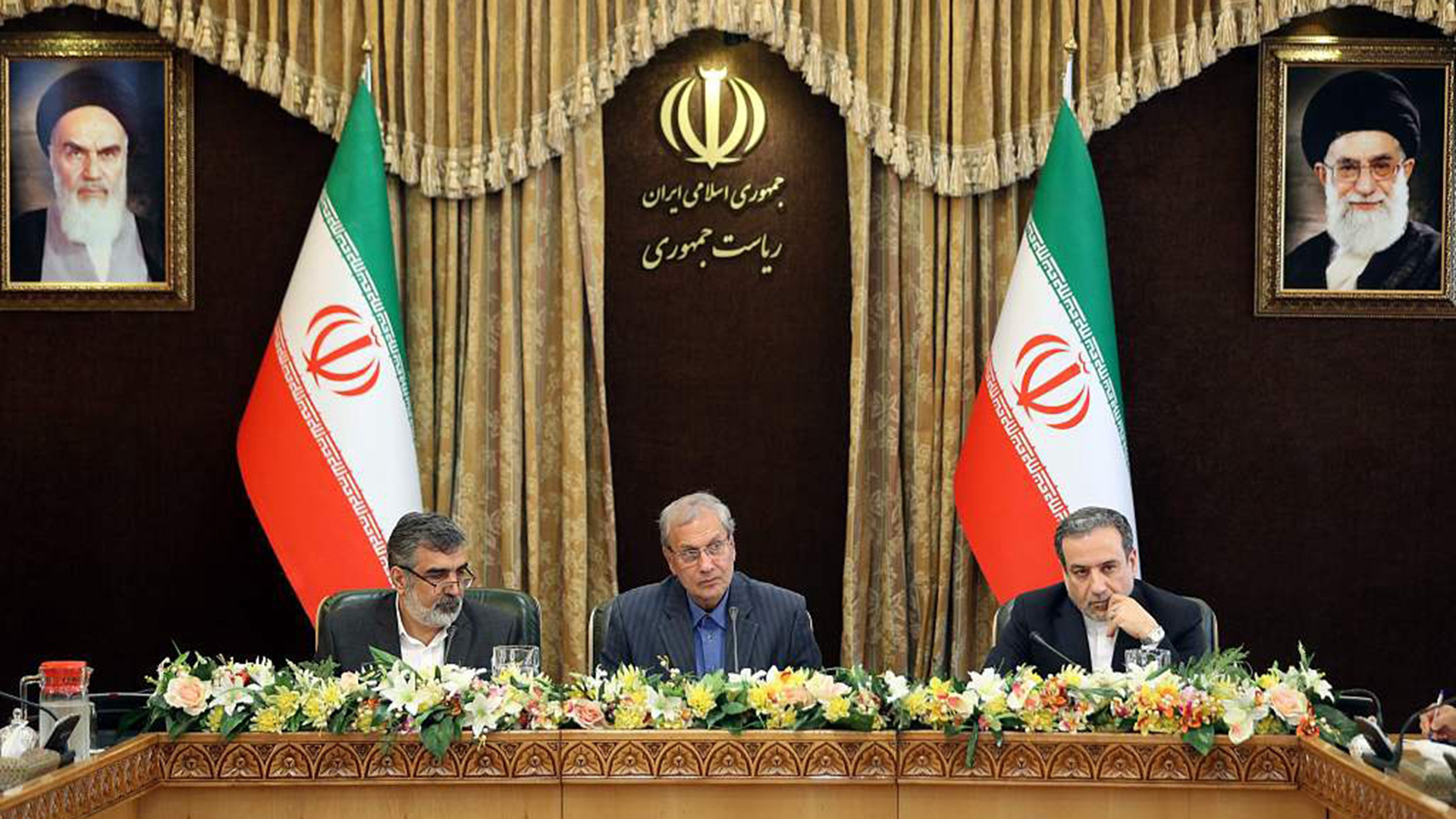
Iran said Sunday it would enrich uranium for use in fueling its Bushehr power plant to the level of 5 percent, surpassing the 3.67 percent limit set under the 2015 nuclear deal with world powers, in further defiance of U.S. efforts to squeeze the country with sanctions and force it to renegotiate the accord.
In a news conference broadcast live, senior Iranian officials said Iran is fully prepared to enrich uranium at any level and with any amount, blaming European countries for failing to fulfill their commitment to the pact, officially known as the Joint Comprehensive Plan of Action (JCPOA).
The U.S. last year pulled out of the accord, which was also signed by China, Russia and European Union countries Britain, France and Germany.
Under the pact, Iran can enrich uranium to 3.67 percent fissile material, well below the 20 percent it was reaching before the deal and the roughly 90 percent suitable for a nuclear weapon.
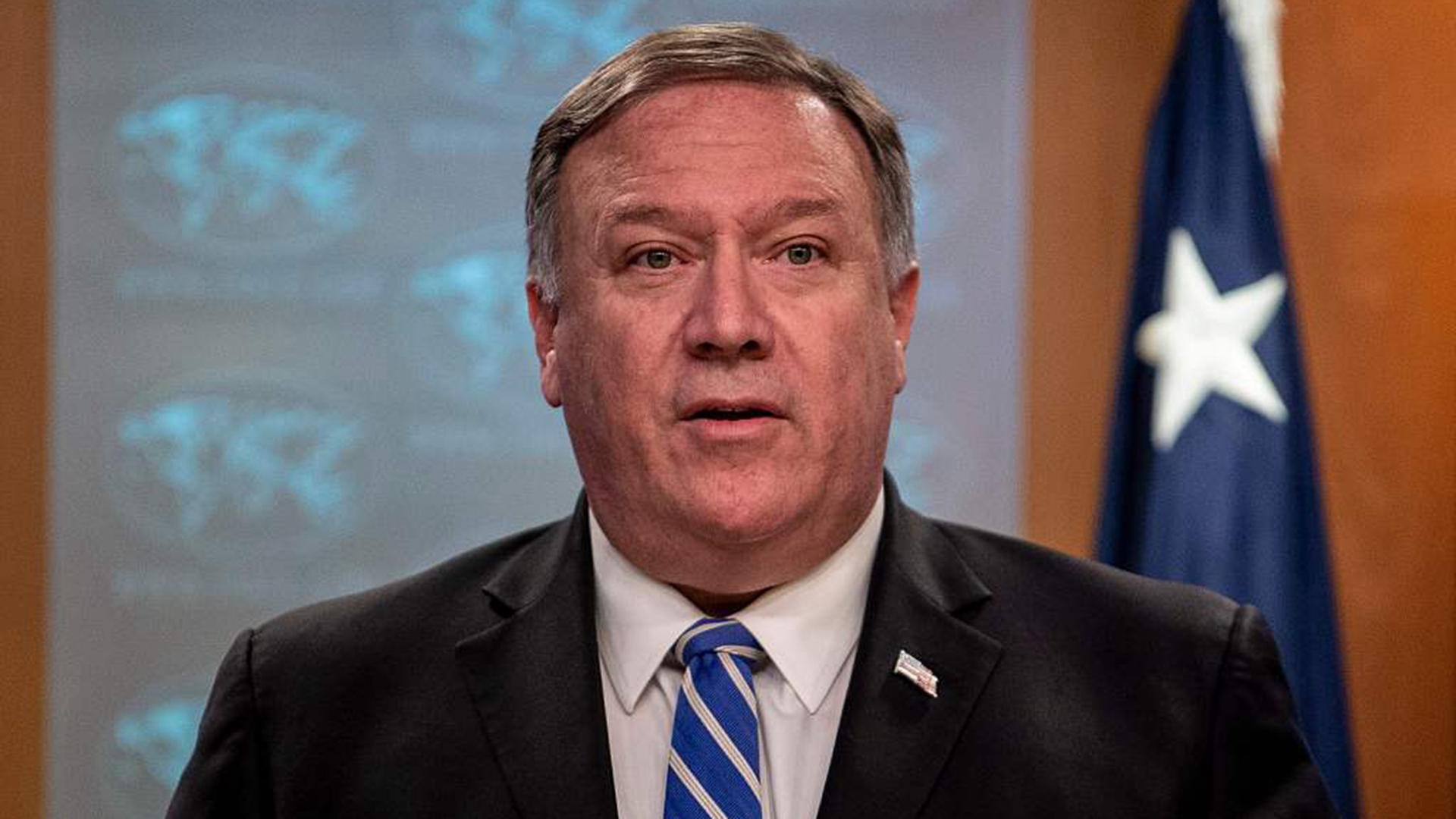
U.S. Secretary of State Mike Pompeo tweeted that Tehran could be further isolated for breaking the cap on uranium enrichment.
"Iran's latest expansion of its nuclear program will lead to further isolation and sanctions. Nations should restore the longstanding standard of no enrichment for Iran's nuclear program," he tweeted.
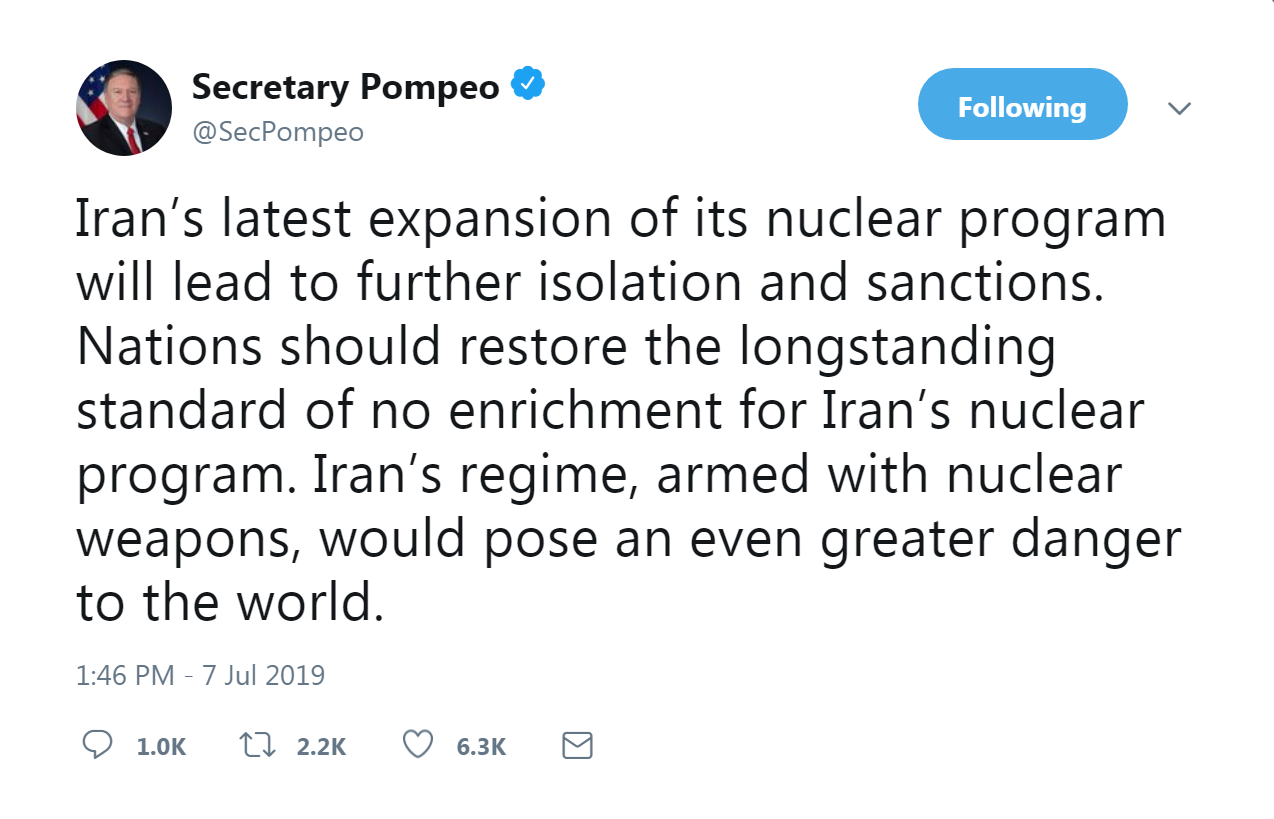
Screenshot of U.S. Secretary of State Mike Pompeo's tweet
Open to diplomacy
According to Iranian officials, the process of raising uranium enrichment higher than set out in the agreement would begin within hours, adding that Tehran would keep reducing its commitments every 60 days unless signatories of the pact moved to protect it from U.S. sanctions. But they left the door open to diplomacy.
Iran's senior negotiator Abbas Araghchi said that Tehran has given enough time to its reduction of commitments to not violate the 2015 pact.
"European countries have failed to uphold their commitments and they are also responsible," he said, adding "The doors of diplomacy are open but what matters are new initiatives which are required."
All measures taken by Iran to scale back its commitments to a 2015 nuclear deal were "reversible" if the European signatories of the pact fulfilled their obligations, Iranian Foreign Minister Mohammad Javad Zarif tweeted.
Behrouz Kamalvandi, Iran's Atomic Energy Organization spokesman said earlier that Iran needed 20 percent of the enriched uranium to fuel its Tehran reactor and the level of enrichment needed for its southern Bushehr nuclear power plant was 5 percent.
"We will enrich uranium based on our needs ... right now we don't need to enrich uranium needed for the Tehran reactor," said Kamalvandi.
"We will enrich uranium to the level that is needed for the Bushehr reactor."
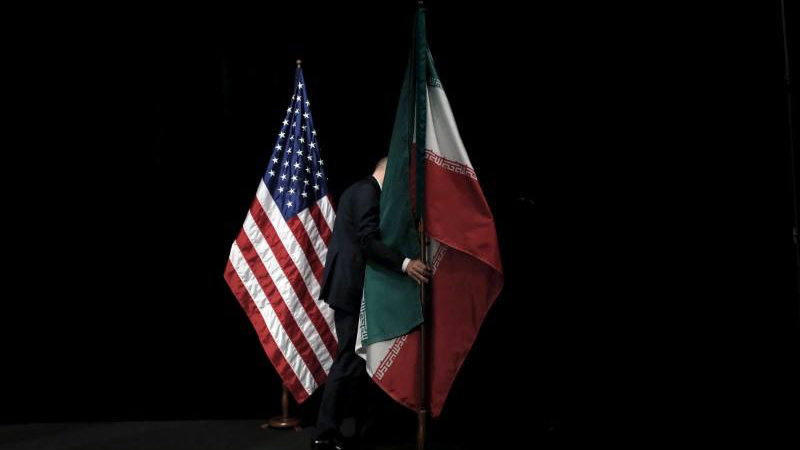
Pressure from the West
Long-tense relations between Tehran and Washington took a turn for the worse in May 2018, when U.S. President Donald Trump pulled out of the 2015 nuclear deal reached before he took office and reimposed sanctions.
Iran's announcement challenging Washington is a test of European diplomacy.
The Europeans, who opposed last year's decision by Trump to abandon the agreement, had pleaded with Iran to keep within its parameters.
Tehran has expressed frustration over what it says is the failure of European parties to the agreement to salvage the pact by protecting Iran's economic interests from U.S. sanctions.
In a sign of heightening Western concern, French President Emmanuel Macron said he and his Iranian counterpart Hassan Rouhani had agreed to seek conditions for a resumption of dialogue on the Iranian nuclear question by July 15.
Macron's office added that he would keep on talking with Iranian authorities and other involved parties to "engage in a de-escalation of tensions related to Iranian nuclear issue."
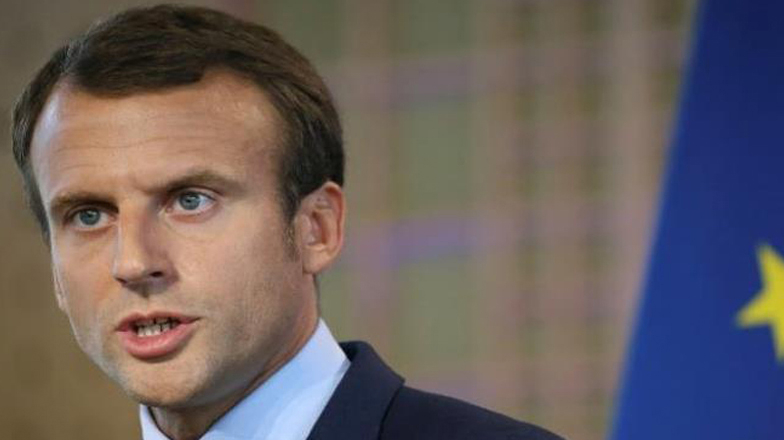
The French president condemned the Iranian decision to enrich uranium above limits agreed upon in 2015, a move he qualified as a "violation" of the agreement reached in 2015. The French government will not trigger the deal's dispute resolution mechanism for now. Instead, it is giving itself a week to try to get all parties talking again.
Germany urged Iran to stop taking measures that undermined the non-proliferation deal.
"We had called upon Iran not to take further measures that undermine the nuclear deal," said a German foreign ministry spokesman. "We strongly urge Iran to stop and reverse all activities inconsistent with its commitments under the JCPOA, including the production of low enriched uranium beyond the respective JCPOA stockpile limit."
A British Foreign Office spokesman said Iran had broken the terms of the JCPOA.
"While the UK remains fully committed to the deal, Iran must immediately stop and reverse all activities inconsistent with its obligations. We are coordinating with other JCPOA participants regarding the next steps under the terms of the deal, including a Joint Commission," the spokesman said.
Israeli Prime Minister Benjamin Netanyahu said the announced increase of uranium enrichment by Iran was an extremely dangerous move and called again on Europe to impose punitive sanctions on Tehran.
Israel's energy minister described the announced increase of Iran's uranium enrichment as moderate but accused Tehran of breaking out of the internationally agreed limitations on its nuclear projects and moving towards nuclear weaponry.
Inspectors from the UN nuclear watchdog, who are in Iran, will report back once they have checked that Tehran has enriched uranium to a higher level of purity than that allowed under its nuclear deal, a spokesman for the International Atomic Energy Agency (IAEA) said.
Read More:
Macron: France, Iran to seek conditions to resume nuclear talks by July 15
Where is Iran nuclear deal headed as Sunday deadline approaches?
Graphics: Attitude gaps between U.S., Iran over nuclear deal
(With input from Reuters)

Copyright © 2018 CGTN. Beijing ICP prepared NO.16065310-3
Copyright © 2018 CGTN. Beijing ICP prepared NO.16065310-3